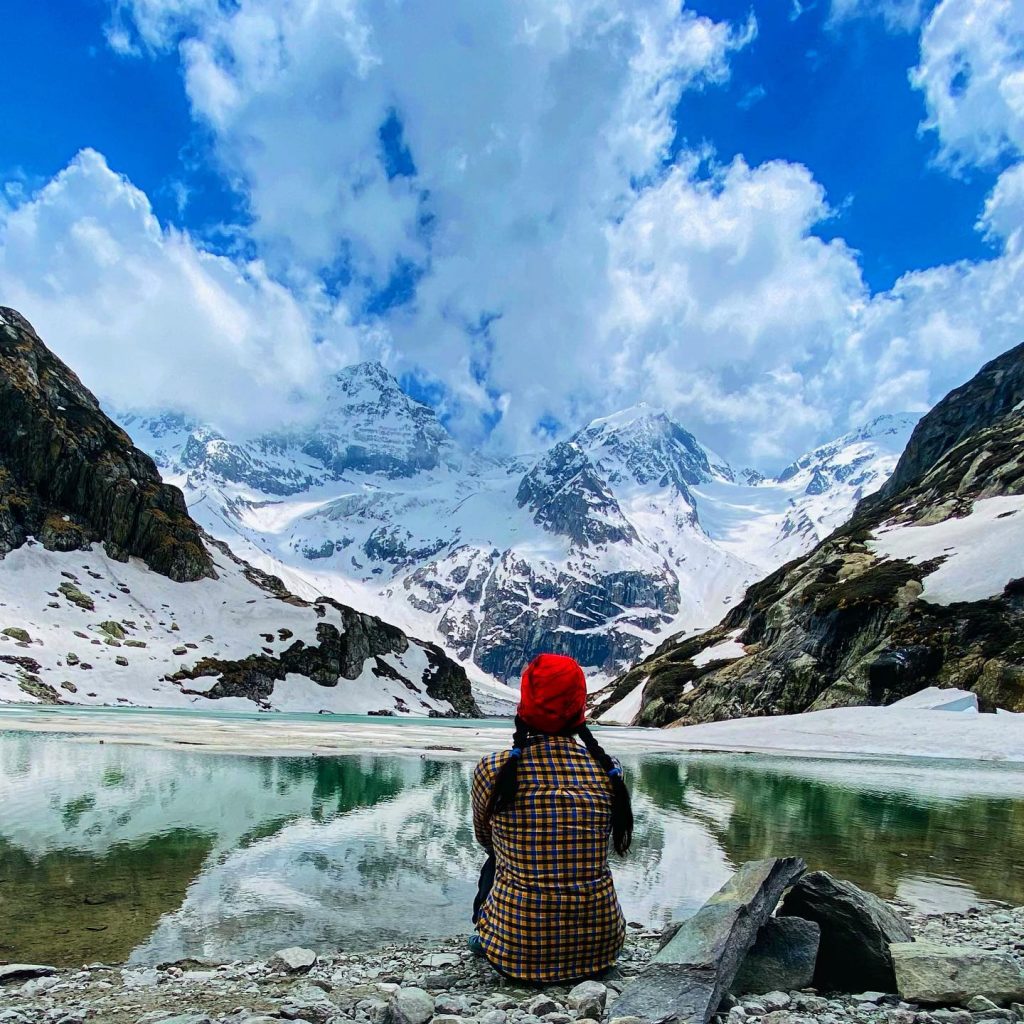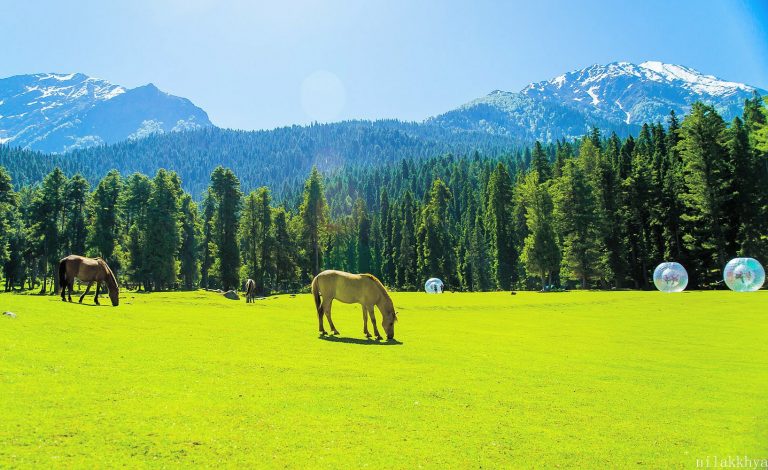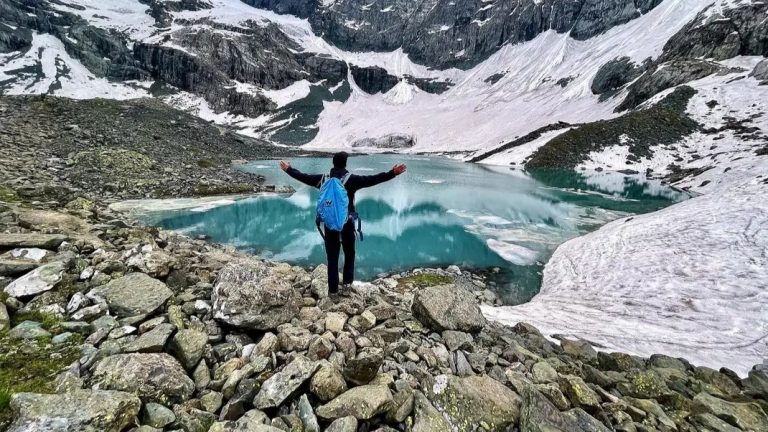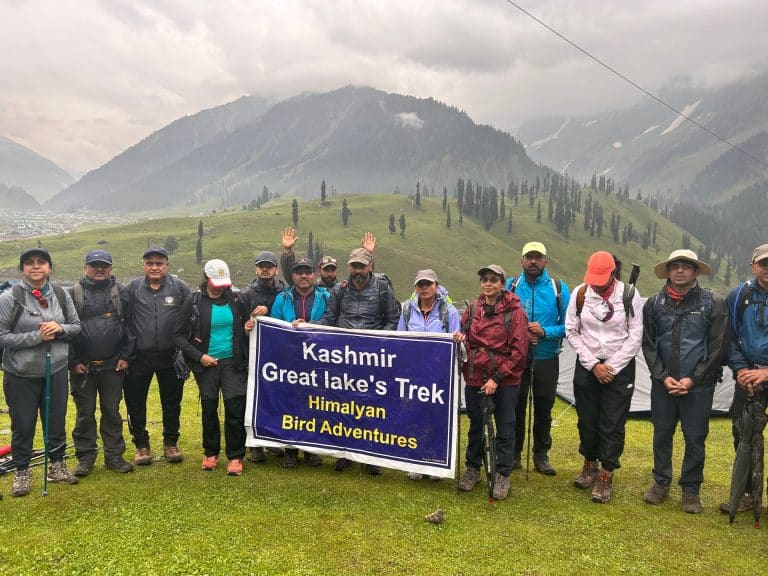Gurez Valley is a hidden gem situated in the northern region of Kashmir. This valley is known for its breathtaking natural beauty, rich cultural heritage, and unique lifestyle. It is surrounded by snow-capped mountains, lush green forests, and crystal-clear water streams, making it a perfect destination for nature enthusiasts.
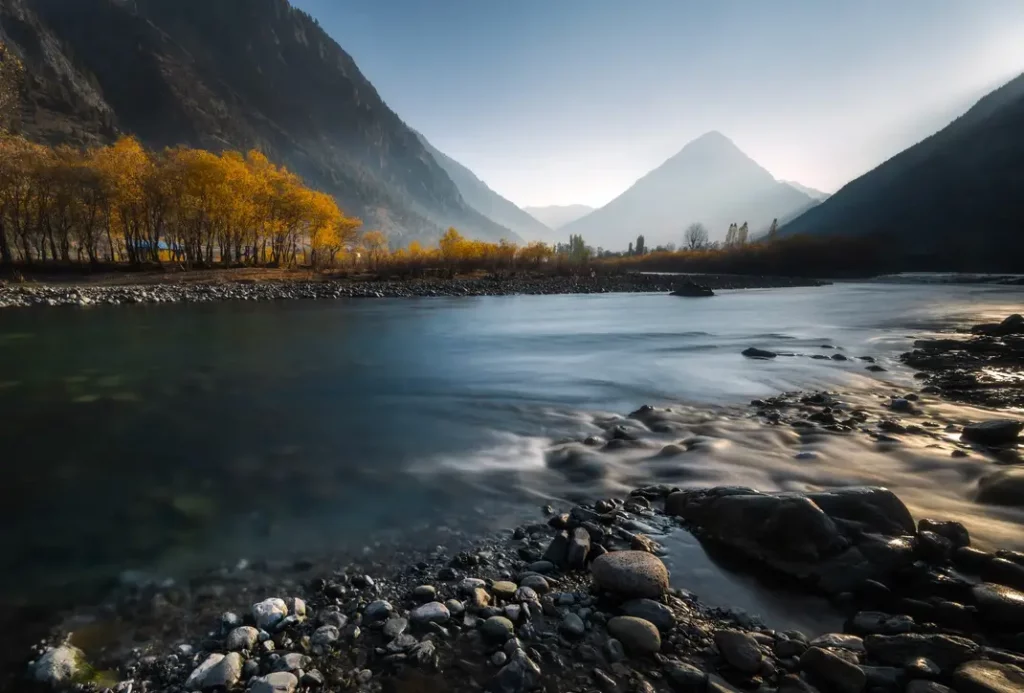
The valley is inhabited by the Dard Shin people, who have their own distinct culture and language. The Dard Shin people are known for their hospitality, and visitors are often welcomed with open arms. The valley is also home to several historical sites, including the Habba Khatoon shrine, which is dedicated to a legendary Kashmiri poetess. The shrine is a popular destination for both tourists and locals alike.
Overall, Gurez Valley is a must-visit destination for anyone looking to experience the natural beauty and rich culture of Kashmir. Its unique blend of scenic beauty and cultural heritage makes it a truly unforgettable experience for visitors.
Note: Unlocking the Hidden Jewel: Gurez Valley 🌟 Closed to tourists until 2008 due to Indo-Pak tensions, this offbeat haven is now a captivating destination! 🏔️ Embrace the beauty, where Indian ID holders are free to explore during the right season. Foreign travelers seek the extraordinary with special permissions. #GurezUnveiled #OffbeatIndia
Geography of Gurez Valley:
Location and Topography
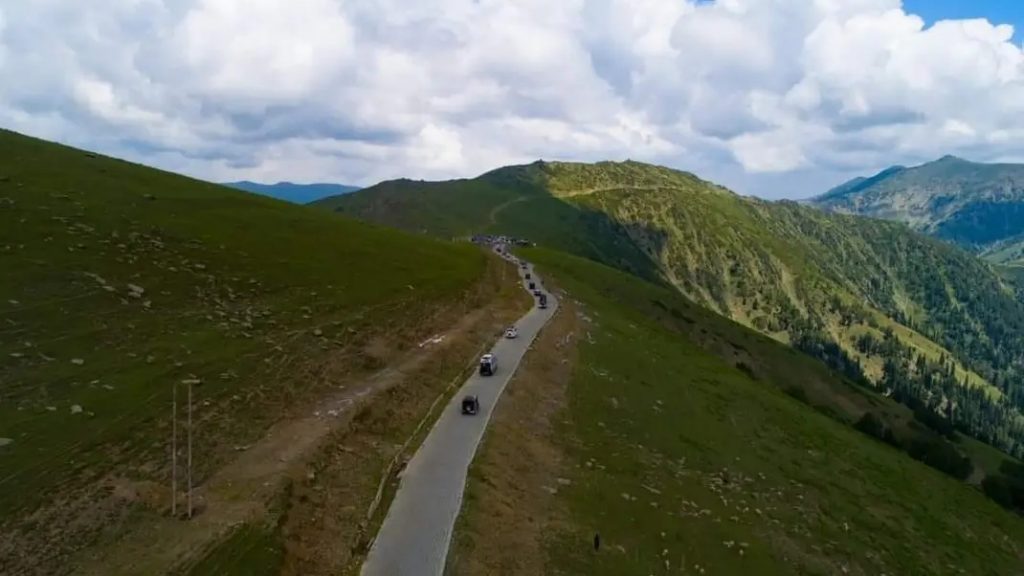
Note: Embark on an unforgettable journey with our exclusive Gurez Tour Packages! 🏞️✨ For tailored travel itineraries and seamless adventures, connect with us through this link. Contact Us
Your Himalayan escape begins here! 🌄🔗 #GurezAdventures #CustomizedTravel
Gurez Valley is a picturesque valley located in the northern part of Jammu and Kashmir, India. The valley is situated at an altitude of 8,000 feet above sea level and is surrounded by the majestic Himalayas. The valley is located at a distance of around 123 km from Srinagar, the capital city of Jammu and Kashmir. The valley is surrounded by high mountains on all sides and is accessible only through a narrow road that winds its way through the mountains.
The topography of Gurez Valley is characterized by steep mountain slopes, deep gorges, and narrow valleys. The valley is bisected by the Kishanganga River, which originates from the glaciers of the Himalayas and flows through the valley before entering Pakistan. The river is an important source of water for the people of the valley and supports a variety of aquatic life.
Climate Patterns
Gurez Valley experiences a cold and harsh climate throughout the year. The valley is covered with snow for most of the year, with temperatures dropping to as low as -10°C during the winter months. The summer months are relatively mild, with temperatures ranging from 10°C to 25°C. The valley receives heavy rainfall during the monsoon season, which lasts from June to September.
Flora and Fauna
Gurez Valley is home to a variety of flora and fauna. The valley is covered with dense forests of coniferous trees such as pine, cedar, and fir. The forests are home to a variety of wildlife, including the Himalayan brown bear, snow leopard, musk deer, and ibex. The valley is also home to a variety of bird species, including the Himalayan monal, snow partridge, and golden eagle.
In conclusion, Gurez Valley is a beautiful and unique destination that offers visitors a chance to experience the natural beauty of the Himalayas. The valley’s rugged terrain, harsh climate, and diverse flora and fauna make it a must-visit destination for nature lovers and adventure seekers.
History of Gurez Valley
Ancient Times
Gurez Valley, located in the northernmost part of Indian-administered Kashmir, has a rich history that dates back to ancient times. The valley was an important trade route between Central Asia and India and was ruled by various dynasties, including the Mauryas, Kushans, and Guptas. The valley was also a center of Buddhism and Hinduism, as evidenced by the numerous ancient temples and monasteries found in the region.
Medieval Period
During the medieval period, Gurez Valley was ruled by various Muslim dynasties, including the Mughals, Afghans, and Sikhs. The valley was an important strategic location, as it provided a gateway to the Central Asian trade routes. The rulers of the valley were known for their military prowess, and many battles were fought in the region.
Modern History
In the 19th century, Gurez Valley came under the control of the Dogra rulers of Jammu and Kashmir. The valley remained relatively isolated until the construction of the Kishanganga Hydroelectric Plant in the 1970s, which brought electricity and infrastructure to the region. Today, Gurez Valley is a popular tourist destination, known for its stunning natural beauty and rich cultural heritage.
Overall, the history of Gurez Valley is a testament to the region’s strategic importance and cultural diversity. From its ancient Buddhist and Hindu temples to its medieval Muslim rulers and modern infrastructure, the valley has a rich and fascinating history that continues to attract visitors from around the world.
Culture of Gurez Valley
Local Traditions
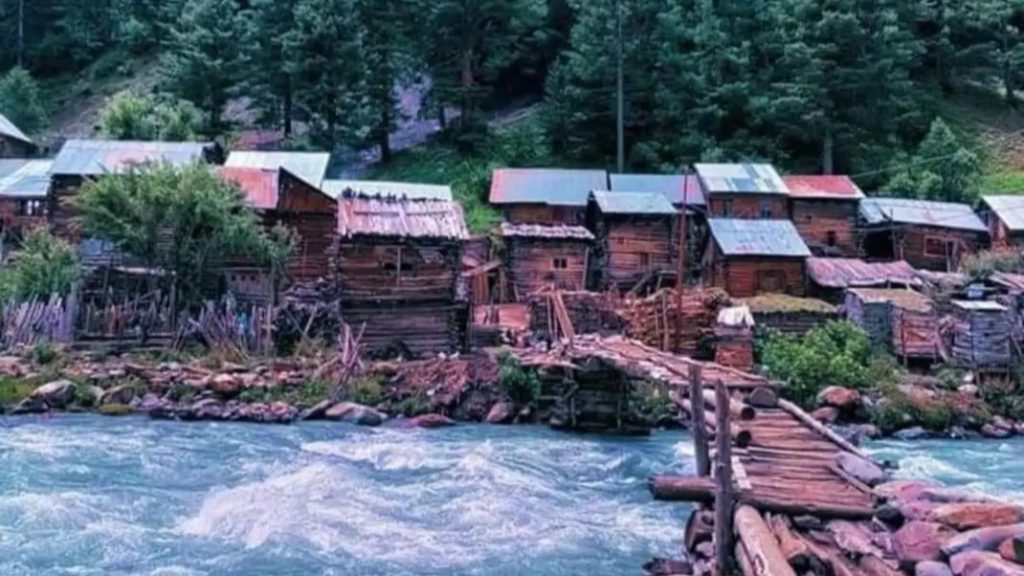
Gurez Valley is known for its unique and rich culture. The locals of the valley have preserved their traditions for centuries. The people of Gurez Valley are predominantly Muslims and follow the Sunni sect of Islam. They have their distinct way of life, which is reflected in their traditions and customs. The people of Gurez Valley are known for their hospitality and kindness. They welcome guests with open arms and treat them with utmost respect.
Fact: A Detailed Article regarding Gurez Valley as cultural heritage by the New York Times was published during 2018.
Languages Spoken
The people of Gurez Valley speak Shina, which is the main language of the region. Shina is an Indo-Aryan language that is spoken by the Dardic people of Gilgit-Baltistan and Khyber Pakhtunkhwa in Pakistan and by the people of Gurez Valley in India. Urdu and English are also spoken and understood by the locals.
Festivals and Celebrations
The people of Gurez Valley celebrate several festivals throughout the year. The most important festival of the valley is Eid-ul-Fitr, which marks the end of the holy month of Ramadan. The festival is celebrated with great enthusiasm and fervor. Another important festival is Eid-ul-Adha, which is celebrated to commemorate the sacrifice of Prophet Ibrahim. The festival is celebrated by sacrificing animals and distributing the meat among family, friends, and the poor.
Apart from these two major festivals, the people of Gurez Valley also celebrate other festivals such as Shab-e-Barat, Shab-e-Qadr, and Milad-un-Nabi. These festivals are celebrated with religious zeal and fervor. The locals also celebrate the harvest festival, which is known as Phool. During this festival, the locals decorate their houses with flowers and offer prayers for a good harvest.
Tourism in Gurez Valley
Gurez Valley is a scenic destination located in the northernmost region of Jammu and Kashmir, India. The valley is known for its breathtaking views, pristine lakes, and snow-capped peaks, making it a popular destination for tourists seeking natural beauty and outdoor adventures.
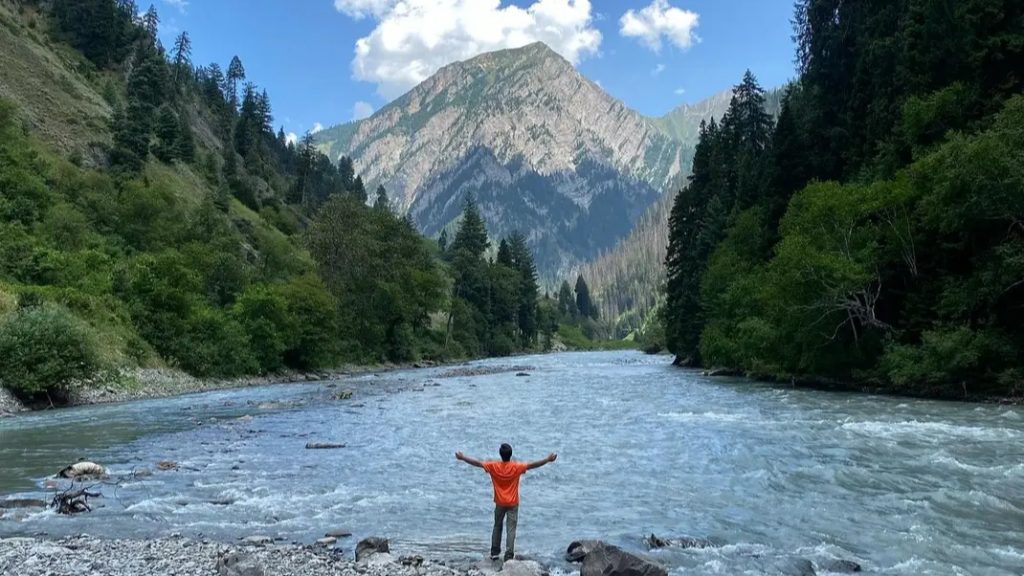
Attractions and Landmarks
Gurez Valley is home to several attractions and landmarks that are worth exploring. One of the most popular landmarks is the Habba Khatoon Peak, which offers stunning views of the surrounding mountains and valleys. The Kishanganga River (Source: Kashmir Great Lakes ) is another popular attraction, where visitors can go fishing or enjoy a relaxing boat ride.
Other notable landmarks in the valley include the Fakir Baba shrine, which is a popular pilgrimage site for both locals and tourists. The shrine is located on a hilltop and offers panoramic views of the valley. The Dawar town is another must-visit destination, known for its traditional wooden houses and vibrant bazaars.
Outdoor Activities
Gurez Valley is a paradise for outdoor enthusiasts, offering a wide range of activities for visitors to enjoy. The valley is a popular destination for trekking, with several trails that offer stunning views of the surrounding mountains and valleys. The Razdan Pass is a popular trekking destination, offering breathtaking views of the Himalayan range.
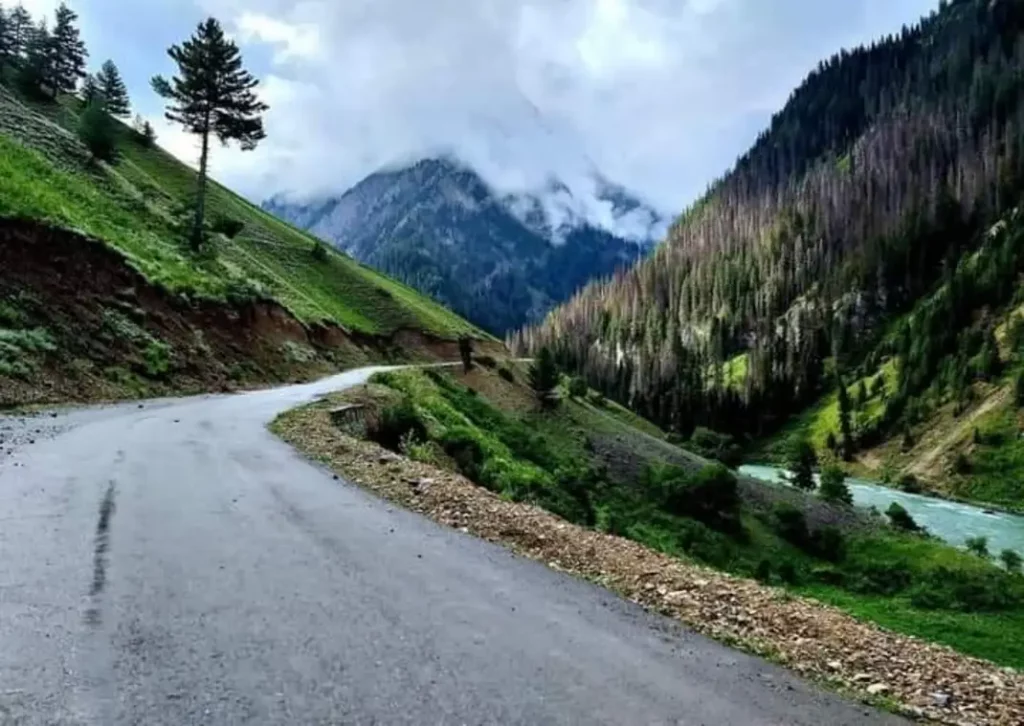
Fishing is another popular activity in Gurez Valley, with the Kishanganga River being a prime spot for trout fishing. Visitors can also enjoy a relaxing boat ride on the river, taking in the scenic beauty of the valley.
Accommodations and Amenities

Note: Embark on an unforgettable journey with our exclusive Gurez Tour Packages! 🏞️✨ For tailored travel itineraries and seamless adventures, connect with us through this link. Contact Us
Your Himalayan escape begins here! 🌄🔗 #GurezAdventures #CustomizedTravel
Gurez Valley offers a range of accommodations and amenities for visitors. The valley has several guest houses and lodges that offer comfortable accommodations at affordable prices. There are also several restaurants and cafes in the valley that serve delicious local cuisine.
Visitors can also find basic amenities such as banks, ATMs, and medical facilities in the valley. However, it is important to note that the valley is a remote destination, and visitors are advised to carry sufficient cash and medical supplies with them.
Overall, Gurez Valley is a must-visit destination for anyone seeking natural beauty and outdoor adventures. With its stunning landscapes, rich culture, and warm hospitality, the valley is sure to leave a lasting impression on visitors.
Economy of Gurez Valley
Agriculture and Livelihood
Gurez Valley is primarily an agrarian region with a majority of the population dependent on agriculture and livestock rearing for their livelihood. The valley is blessed with fertile land and abundant water resources, making it suitable for growing a variety of crops such as wheat, maize, barley, and vegetables. The people of Gurez are known for their traditional farming practices and use of organic fertilizers.
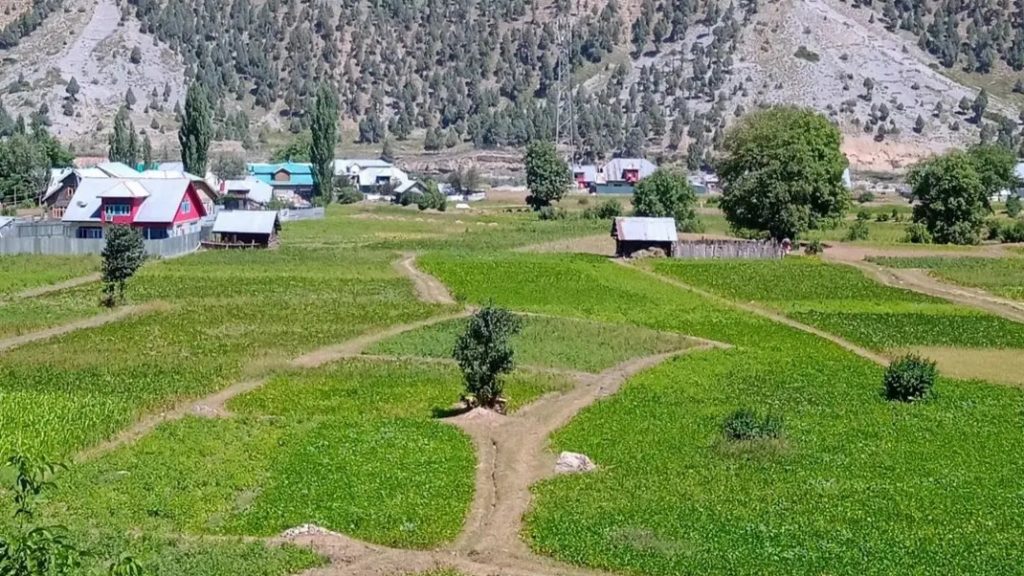
Apart from agriculture, livestock rearing is another important source of livelihood for the people of Gurez. They rear cattle, sheep, and goats, which provide them with milk, meat, and wool. The wool is used to make traditional clothing such as pherons and namdas, which are sold in local markets.
Trade and Commerce
Gurez Valley is strategically located on the historic Silk Route, which connects Central Asia to South Asia. The valley has a rich history of trade and commerce, and even today, it serves as an important trade route between India and Pakistan. The main trading items include fruits, vegetables, handicrafts, and woolen products.
The local markets in Gurez are known for their unique handicrafts such as carpets, shawls, and wooden artifacts. These products are made by skilled craftsmen using traditional techniques and are highly sought after by tourists.
In recent years, tourism has emerged as an important source of income for the people of Gurez. The valley’s natural beauty, rich culture, and warm hospitality have attracted tourists from all over the world. The government has taken several initiatives to promote tourism in the region, such as developing infrastructure, organizing cultural events, and providing training to local guides.
Overall, the economy of Gurez Valley is primarily based on agriculture, livestock rearing, and trade. The people of Gurez take pride in their traditional way of life and are committed to preserving their rich cultural heritage.
Infrastructure in Gurez Valley
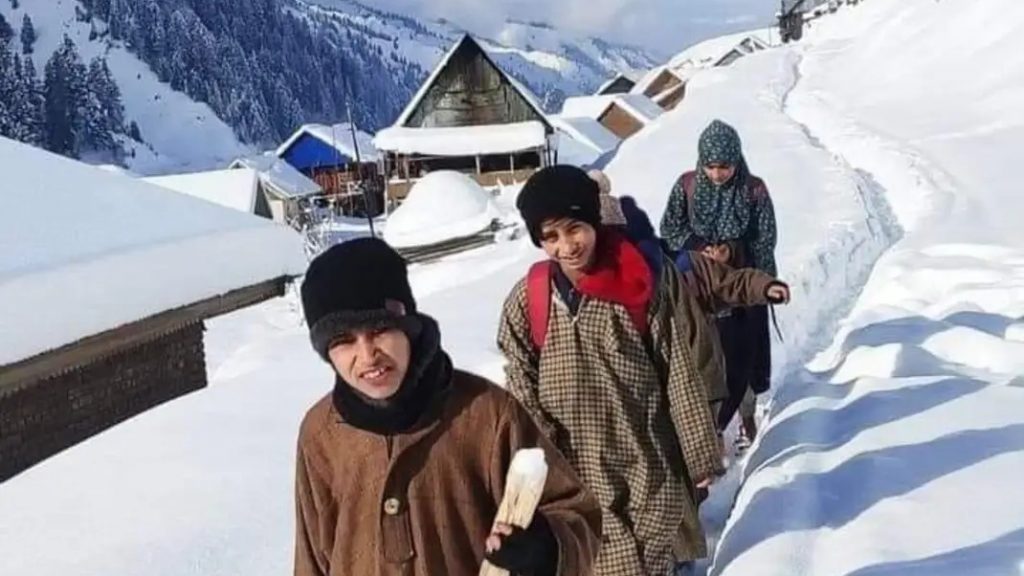
Transportation Networks
Gurez Valley is a remote region located in the northern part of the Indian-administered state of Jammu and Kashmir. Due to its geographical location, the valley is not easily accessible by road. The only road that connects Gurez Valley to the rest of the state is the Bandipora-Gurez road, which is closed during the winter months due to heavy snowfall. The road is narrow and winding, making it difficult to navigate. Despite these challenges, efforts have been made to improve the road infrastructure in the valley. In recent years, the government has constructed several bridges and tunnels to make the road safer and more accessible.
Education and Healthcare
Gurez Valley has a limited number of educational and healthcare facilities. There are only a few schools in the valley, and most of them do not have proper infrastructure or qualified teachers. The government has taken steps to improve the education system in the valley by providing funding for the construction of new schools and the recruitment of qualified teachers. However, more needs to be done to ensure that every child in the valley has access to quality education.
Similarly, healthcare facilities in the valley are limited. There is only one hospital in the valley, which is not equipped to handle serious medical emergencies. Patients who require specialized medical treatment have to travel to Srinagar, which is located more than 100 km away. The government has initiated several healthcare projects in the valley, including the construction of new hospitals and the recruitment of medical staff. These initiatives have improved the healthcare infrastructure in the valley, but more needs to be done to ensure that every person in the valley has access to quality healthcare.
In summary, Gurez Valley faces significant infrastructure challenges, particularly in the areas of transportation, education, and healthcare. While the government has taken steps to address these challenges, more needs to be done to ensure that the people of Gurez Valley have access to basic services and amenities.
Note: Embark on an unforgettable journey with our exclusive Gurez Tour Packages! 🏞️✨ For tailored travel itineraries and seamless adventures, connect with us through this link. Contact Us
Your Himalayan escape begins here! 🌄🔗 #GurezAdventures #CustomizedTravel



